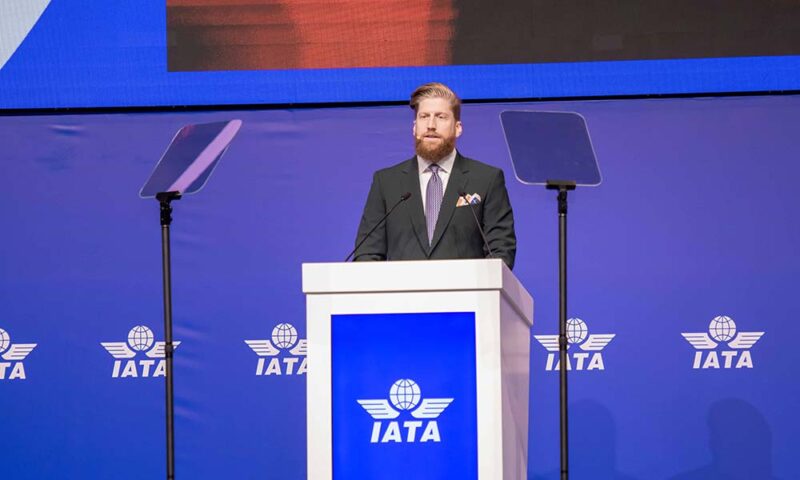
Safety is the top priority for air transport
The International Air Transport Association (IATA) has emphasized the vital role of air cargo in maintaining global supply chain resilience and called on governments and industry to remain focused on delivering the fundamental expectations of customer safety and security, digitalization and sustainability.
“To meet customer expectations and navigate an increasingly complex environment, the air cargo industry must continuously strengthen safety and security, fast-track digitalization, and deliver on its sustainability commitments,” affirmed Brendan Sullivan, IATA’s Global Head of Cargo at the recent opening of the 18th World Cargo Symposium (WCS) in Dubai, UAE on 15 April 2025
Safety: Zero tolerance for rogue shippers
Safety is the top priority for air transport and in the case of air cargo the specific focus is on the safe transport of lithium batteries. IATA called on governments to step up efforts to stop rogue shippers and support ICAO’s work to strengthen Annex 18 of the Chicago Convention—the global framework for the safe transport of dangerous goods by air.
“Shipments of lithium batteries are growing in volume. With that come increased risks associated with undeclared or mis-declared goods. The industry has invested in training, certification, and technology. Governments must match that commitment with robust oversight and enforcement,” noted Sullivan.
Security: The need for coordinated risk-based measures
IATA reinforced calls to governments for a coordinated, risk-based approach to air cargo security following recent incidents involving incendiary devices concealed in shipments. While some states implemented new measures, the lack of alignment led to inconsistent outcomes. This situation reinforces the importance of harmonized responses based on global standards.
“Recent security incidents highlight the need for better coordination among governments. Aviation security cannot be built on fragmented or reactionary measures. Global standards and cooperation are essential,” observed Sullivan.
Digitalization: Accelerating industry-wide adoption of ONE Record
IATA reinforced the central role of ONE Record as the industry’s standard for end-to-end digital data exchange, supporting improved efficiency, compliance, and transparency. The industry’s goal is clear: by January 2026, ONE Record will become the preferred method of sharing data. To accelerate industry adoption IATA urged:
Sustainability: SAF support needed
The air cargo industry continues to embed sustainability into its operations, with growing efforts to reduce waste, implement circular practices, and phase out single-use plastics. For example, IATA guidance to eliminate single-use plastics across the cargo supply chain is now reflected in operational standards.
Trade Tensions
Amid growing trade tensions, IATA reinforced its position that trade drives prosperity, and that any measures undermining the free flow of goods ultimately hurt businesses, consumers, and economies.
“Current trade tensions are deeply concerning. Trade drives prosperity. The more the world trades, the better off we all are. So, whatever the resolution of current trade tensions is, we know that air cargo will be there to deliver the goods people need and want,” concluded Sullivan.
